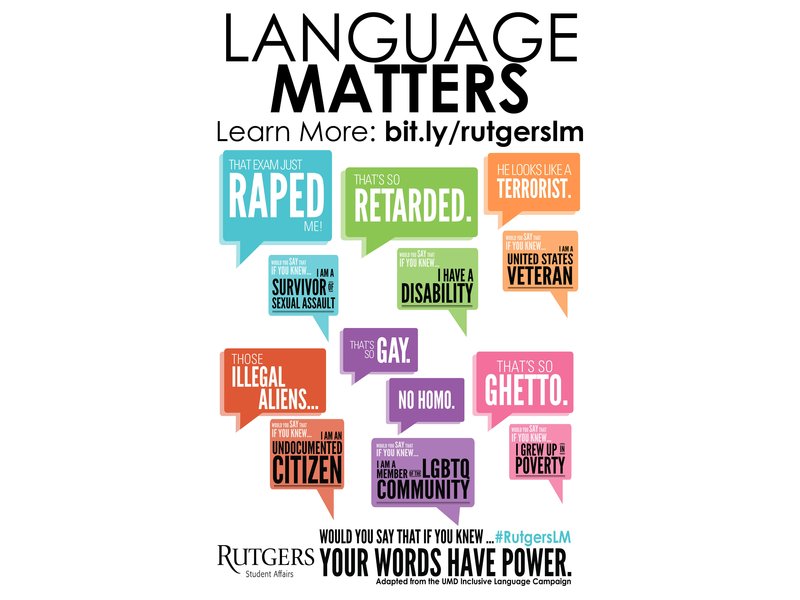A01
Week 7
This week upon reading "How Trigger Warnings Are Hurting Mental Health on Campus", I learned more about a topic I was slightly familiar with. As a university student I am familiar with trigger warnings and using sensitive language when around others in most settings. At a leadership retreat last year, I participated in a workshop where we were told more about trigger warnings and how using words such as "rape" or "kill" in a social setting may be extremely triggering towards others even when it was not intended by the speaker. These were all suggestions that were known to myself and my peers already however there were some words I did not previously know could potentially be triggering towards others. Words such as "crazy" were pointed out to be possibly triggering and we were encouraged to use synonymous words such as "wild" instead. In the article, when Meyers discussed microaggressions, I felt the familiarity of the concept because I had done the workshop previously. I definitely agree that students in the university setting should be cognizant of their words and actions at all times and the article's discussion on microaggressions definitely affirmed this. Although, I had previously had not known that microaggressions could come in the form of questions such as where one is originally from which can appear as a suggestion to some. Although all of these different perspectives of triggering language may take some time to gain a world wide recognition and practice overall, I do believe it is a good thing that the movement has started. I appreciate and agree with how the articles discusses the importance of teaching students "how to think" as oppose to "what to think" because it goes very well with teaching the dangers of triggering language. If more students can empathize with the other side, the more it will encourage them to use safe and inclusive language in their everyday interactions.
Question: All of the different approaches towards inclusive and non-triggering language may be difficult for some to apply to themselves, that being said is this movement turning off some individuals due to its difference and do some see it as tedious?
References
1) Meyers, A. B. (n.d.). How Trigger Warnings Are Hurting Mental Health on Campus . The Atlantic.
2) "Language Maatters". Rutgers Student Affairs. Retrieved November 3rd, 2017. [Digital Image] https://patch.com/new-jersey/newbrunswick/why-language-matters-campaign-raises-awareness-rutgers

No comments:
Post a Comment